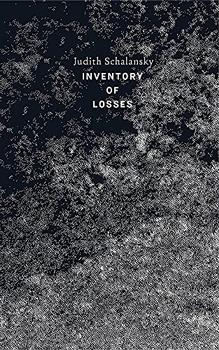Summary | Excerpt | Reviews | Beyond the Book | Readalikes | Genres & Themes | Author Bio

Excerpt
An Inventory of Losses
Between 1810 and 1820, Caspar David Friedrich painted the harbor of his native city of Greifswald crowded with the masts of sailing ships, among them galleasses, brigantines and yachts. The old Hanseatic city was connected with all the major commercial centers via the navigable estuary of the river Ryck, which flows into the Baltic Sea, and even though the channel of the river Ryck was much broader then, it frequently threatened to silt up.
The 94-centimeter-high, 74-centimeter-wide oil painting had been in the possession of the Hamburger Kunsthalle since 1909, and in 1931 went on show at Munich's Glass Palace as part of the exhibition Works by German Romantics from Caspar David Friedrich to Moritz von Schwind. On June 6 a fire broke out there that destroyed more than three thousand paintings, including all the works in the special exhibition.
*
The problem is not locating the source but making it out. I am standing by a meadow with a map in my hand which is no help to me. In front of me is a ditch, the water not deep, the channel at most half a meter wide, the water's surface covered with a holy carpet of yellowish-green duckweed. Sedge grows along the bank, yellow and pale as straw. The place where the water apparently rises to the surface from the depths of the earth has been colonized by thick green moss. What did I expect? A bubbling spring? An information board? I refer to the map once more, look for the slack blue line that starts in the eggshell-colored open terrain below the green-shaded woodland area. It may well be that the true source is more likely to be found up there, in the forest stretching out behind the handful of houses which turn this spot into an actual place with a name that I was able to tell the taxi driver. No doubt he was wondering what I was planning to do here, especially on an Easter Saturday, but in this part of the country, curiosity alone has never tempted anyone into speaking. The people here are serious and indifferent – as if submerged in a nameless sorrow—and, like this landscape, get by perfectly well without words.
This wholly inconspicuous rivulet probably is, in fact, what I am looking for: the source of the Ryck, formerly the river Hilda, which supplies the port of Greifswald many kilometers seawards of here, before flowing, broad and almost majestic, into an inlet of the bay, the Danish Wieck. I see the fissured, greying timber of the fence posts to my left, the two lines of rusty barbed wire, behind them the grassland dotted with countless mounds of freshly dug earth, the work of industrious moles, and, as was my intention, start to follow the upper course of the river in a south-westerly direction.
The great blanket of cloud spread out across the sky hangs low and heavy over me. Only in the distance are there breaks in the cloud, giving a glimpse of a streak of pale powder pink. A few broad-shouldered oak trees stand overlooking the paddock, remnants of a wood pasture long-since cleared. Their branches are reflected in the hollows brimming with rain and meltwater, big as lakes. Grass grows up like rushes out of the pale blue pools. A wagtail hops through the water, dips its tail feathers in a curtsey, and takes off on its springy flight.
Encrusted patches of March snow, barely three days old, glisten from the shaded grassy corners, from the indented tractor tracks, and from the white plastic wrappings covering the round bales, in which the hay ferments into silage. An overturned trough is rusting on the riverbank. Spreading above it are bare branches of hawthorn, its bark enveloped in sulphur-yellow lichen. The trumpet call of the crane rings out, triumphal and indignant. Beyond the ditch, two lead-grey birds raise their oversized wings and propel themselves into the air, only to wheel around ready to land again not long afterwards—in perfect unison, their legs reaching out towards the ground—and with three breathless beats of their wings come to a standstill. Their call resonates for a while longer, until it is finally swallowed by the east wind. It hisses in from the sea, a piercing wind that sweeps moth-grey oak leaves before it. The arable soil feels soapy underfoot. Blackish brown lumps of clay lie bare and sodden on the surface. In the furrows, rape is sprouting, its leaf edges already stained peroxide blond by pesticides. The colours are pale, the light feeble, as if dusk might descend at any moment.
Excerpted from An Inventory of Losses, copyright © 2018 by Judith Schalansky, translation copyright © 2019 by Jackie Smith. First published as Verzeichnis einiger Verluste by Suhrkamp Verlag, Berlin. Reprinted by permission of New Directions Publishing Corp.




Never doubt that a small group of thoughtful, committed people can change the world...
Click Here to find out who said this, as well as discovering other famous literary quotes!
Your guide toexceptional books
BookBrowse seeks out and recommends the best in contemporary fiction and nonfiction—books that not only engage and entertain but also deepen our understanding of ourselves and the world around us.